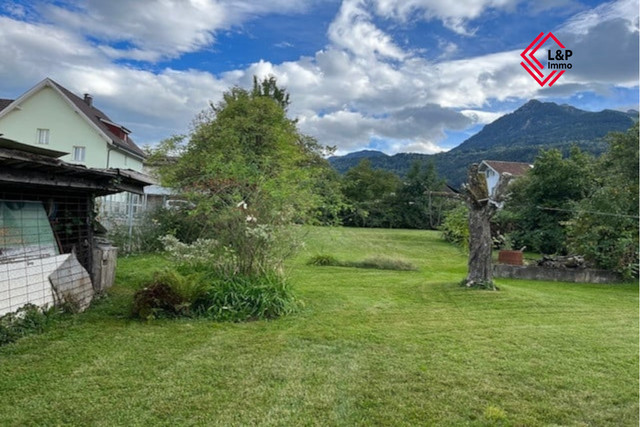How is the Risk of Blackout in Austria?

Even though a blackout in Austria cannot be completely ruled out, the risk is very low according to Christoph Schuh, spokesperson for Austrian Power Grid (APG). "Several unforeseen events would have to coincide," Schuh told the APA. A power plant failure would not be a problem for supply in any case.
APG Spokesperson Sees Very Low Blackout Risk in Austria
The APG operates the regional high-voltage network in the country. This network consists of nearly 7,000 kilometers of power lines that supply Austria with electrical energy. Regional network operators like Wiener Netze or Netz NÖ are then responsible for local distribution. The most important energy source is hydropower, but according to APG, wind power and photovoltaics have also been significantly expanded in recent years. The supply security is therefore at 99.99 percent.
According to Schuh, the n-1 principle applies to electricity supply in Austria. This ensures that the power grid remains stable even if a central operating resource - such as a power plant - fails unexpectedly. "The basic prerequisite of our operations management is that we must be able to handle unforeseen crisis situations and not every singular event immediately leads to a blackout risk. A large-scale power outage can only occur if several unforeseen events occur in a close, temporal, and technical context," said Schuh. However, what does exist in Austria are regional interruptions of the power line, for example in alpine areas during the winter months.
Rapid Action by European Transmission System Operators
In the specific case on the Iberian Peninsula, the European transmission system operators acted quickly to avert the disaster. "If there is a large-scale disruption, the network connections are separated and the affected country is stabilized in island operation," explained Christian Schirmer from Netz NÖ.
Austria is prepared for large-scale disruptions and can also independently resume power supply in a decoupled state. In the event of a large-scale power outage, so-called black start-capable power plants are crucial. These power plants can start up independently without external power supply. Gradually, other facilities are then connected until the entire power grid is stably restored. Austria has several black start-capable power plants, such as the pumped storage power plant Kaprun in Salzburg.

Similar to Schuh, the CEO of Energie AG Oberösterreich, Leonhard Schitter, also commented on a possible blackout in this country. "I do not see this risk for Austria," Schitter said on Tuesday at the Club of Economic Journalists. "Of course, nothing can be ruled out, but we see ourselves well prepared to bring Austria back online in a short time." The domestic networks are "excellently" developed, Schitter added.
Supply Security in Austria at 99.99 Percent
The electricity supply was and is not affected at any time by the current incident in Spain and Portugal, the Ministry of Economic Affairs clarified in a statement on Tuesday afternoon. The supply security remains at a worldwide top level of 99.99 percent.
Minister Wolfgang Hattmannsdorfer (ÖVP): "Austria is well prepared for a possible blackout." In the event of a national crisis - such as a large-scale power outage - the Federal Crisis Security Act provides clear responsibilities. Coordination lies with the Federal Chancellery, while all ministries are obliged to actively take measures according to their respective laws. Regular crisis exercises in the areas of cybersecurity, business continuity, and crisis management, as well as energy steering exercises in the event of a power shortage, would strengthen domestic resilience in the event of a blackout. In addition, supply chain stress tests are always conducted as part of economic national defense during crisis exercises.
Court of Audit Criticism of Lack of Blackout Preparation
In a report in January, the Court of Audit did not give Austria a good grade for its preparation for a blackout. In the event of a blackout, there is a lack of a national plan for information and communication. Although all levels of government have made preparations for such a comprehensive power outage, these are of varying intensity and at different stages of progress.
ORS Group's Demand After Power Outage in Spain and Portugal
The ORS Group is using the recent major power outage in Spain and Portugal as an opportunity to call for the mandatory introduction of 5G Broadcast for public warnings on mobile phones across Europe. This would allow warning messages to be sent to mobile phones via TV and radio transmission facilities despite a possible collapse of mobile networks, according to a statement from the ORF broadcasting subsidiary.
"Europe needs a resilient, independent, and comprehensive public warning infrastructure that works across all channels - TV, radio, and in the future also mobile phones via 5G Broadcast," ORS Managing Director Michael Wagenhofer was quoted as saying. It is time "to introduce this life-saving technology across Europe on a mandatory basis." A coordinated approach at the European level is needed for this. Necessary adjustments are minimal, and technically it would be very easy to equip devices with the necessary function, it was said.
(APA/Red)
This article has been automatically translated, read the original article here.
Du hast einen Hinweis für uns? Oder einen Insider-Tipp, was bei dir in der Gegend gerade passiert? Dann melde dich bei uns, damit wir darüber berichten können.
Wir gehen allen Hinweisen nach, die wir erhalten. Und damit wir schon einen Vorgeschmack und einen guten Überblick bekommen, freuen wir uns über Fotos, Videos oder Texte. Einfach das Formular unten ausfüllen und schon landet dein Tipp bei uns in der Redaktion.
Alternativ kannst du uns direkt über WhatsApp kontaktieren: Zum WhatsApp Chat
Herzlichen Dank für deine Zusendung.








